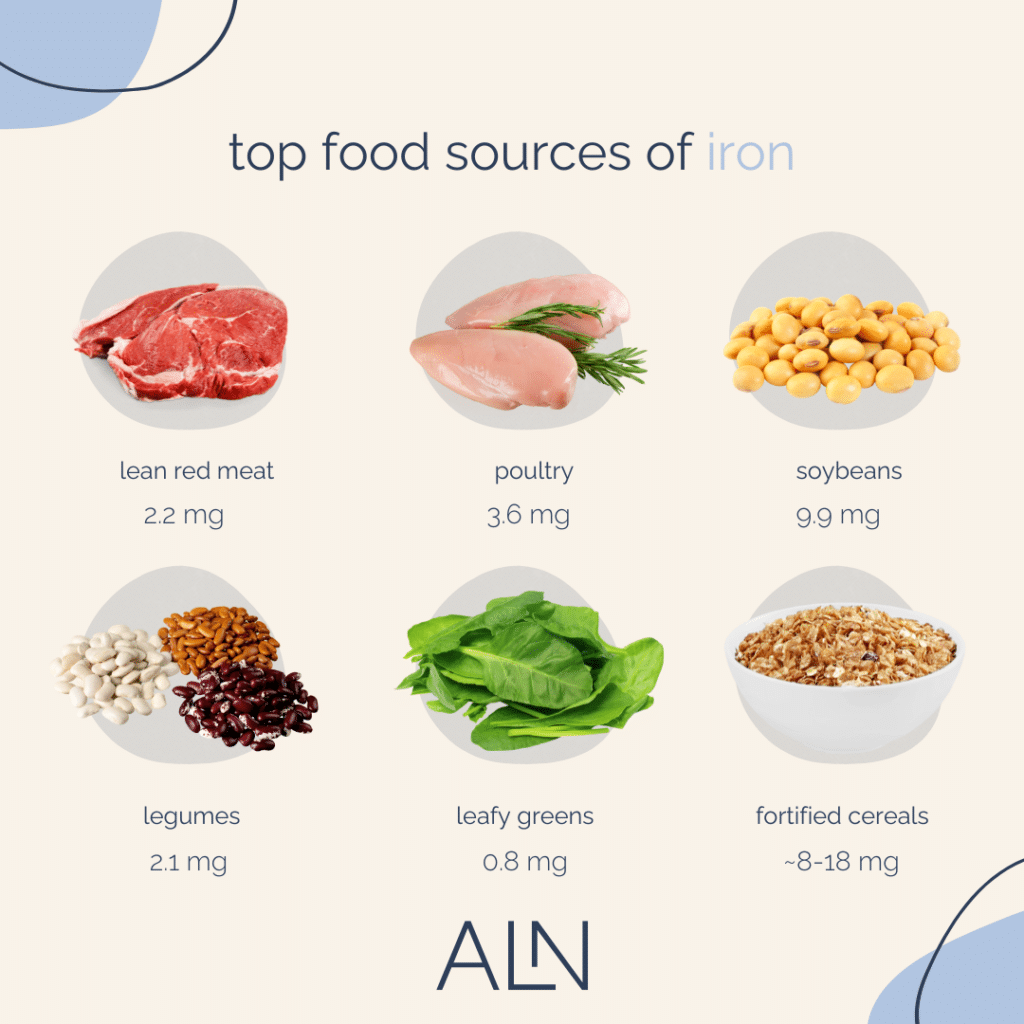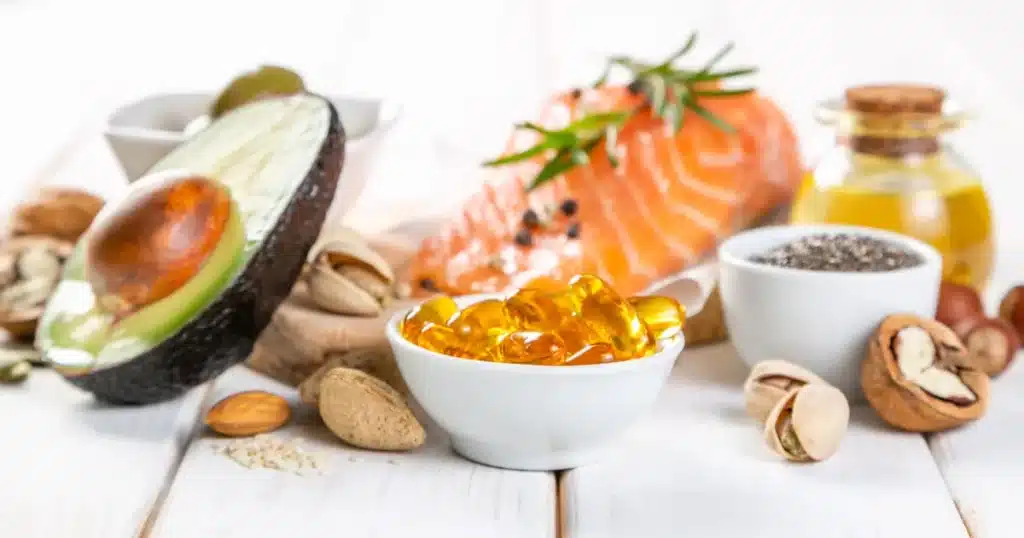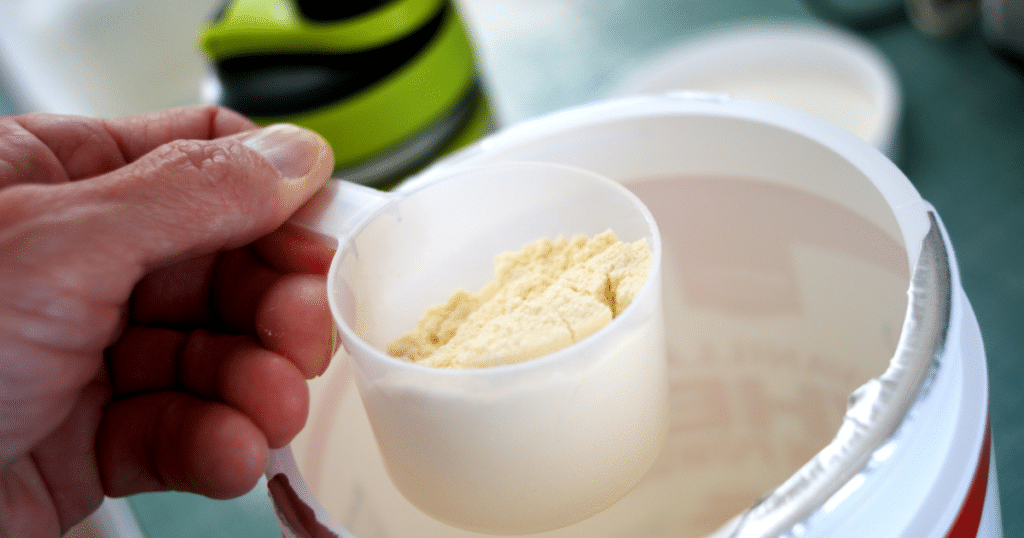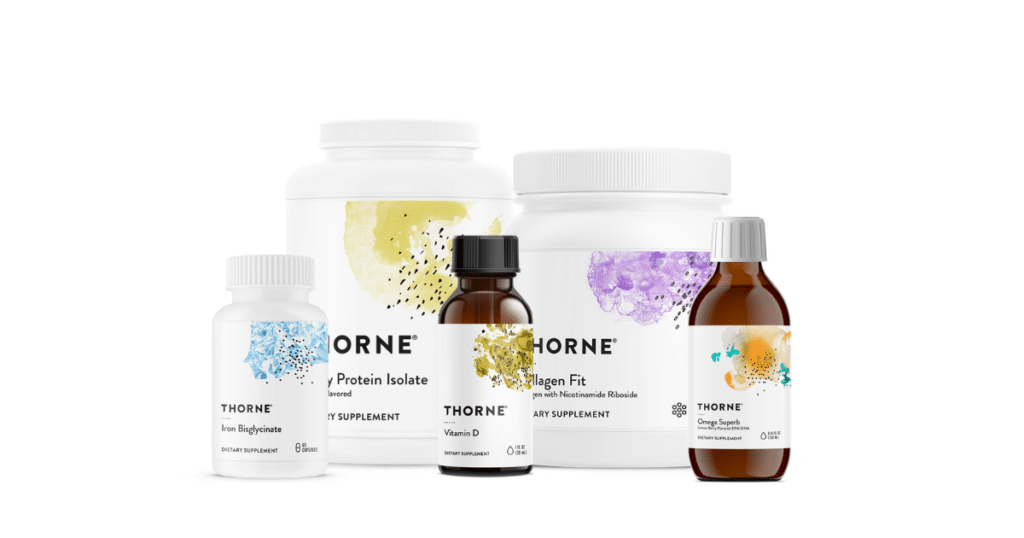Level Up Your Nutrition Game With Our Freebies
Alex
I provide nutrition coaching for endurance athletes to improve performance and body composition through a simple and flexible eating style.
Hi, I'm
ATHLETE EATING GUIDE →
LEARN MORE →
ATHLETE GROCERY SHOPPING GUIDE →
10-DAY PROTEIN-PACKED SAMPLE MEAL PLAN
READY TO FUEL?
incredible value!
The fueling guide bundle serves as your one-stop-shop for strategies to fueling before, during and after your workouts.

While our team at ALN promotes a “food first” approach to nutrition, there are always exceptions. Nutritional supplements can be a very slippery slope when it comes to optimizing nutrition, but certainly there are a few favorites that many runners and endurance athletes benefit from. Read below for our list of the best supplements for runners to consider.
Do Runners Need Supplements?
Runners have higher nutritional needs and there are countless reasons why it may be difficult to meet your nutrition goals day in and day out.
- A busy and hectic work schedule,
- Lack of meal planning and preparation,
- And, even frequent travel can deter individuals from meeting their nutrition goals.
In situations where you’re not able to meet your nutrition through food alone, a supplement is worth exploring.
Supplement (noun): something that completes or enhances something else when added to it. The grocery store is bombarded with endless nutrition supplement aisles and it is difficult to know which ones, if any, benefit runners and endurance athletes. We are so glad you asked if runners need nutrition supplements because the short answer is: it depends. It depends largely on the individual and on the specific supplement.
Getting in your nutrition from food first will always be the gold standard. Furthermore, supplements should never be a replacement for a nutritious and well-balanced diet. Though certainly nutrition supplements can complete and/or enhance your daily nutrition intake. Supplements can also help to optimize nutrition goals whether you are in peak training season or out of season.
Top 5 best supplements for runners

While individual needs vary largely from person to person, these are a few of our most common go-to nutrition supplements. Always discuss any specific supplementation regimen, including dosage amount, with your medical care provider prior to starting.
Multivitamin
The primary role of a multivitamin supplement is to fill common nutrient gaps. Multivitamins also make it easier to ensure that individuals are getting their daily allowance of under-consumed nutrients including vitamin A, E, K, calcium and magnesium. Most multivitamin supplements contain fat-soluble and water-soluble vitamins in addition to minerals. Multivitamins are going to be low risk and also low cost. Multivitamins are often found in the pill form, though if in the powder form can be mixed into a morning smoothie or glass of water.
Important consideration
Avoid “double dipping.” Most multivitamin supplements contain a plethora of important nutrients including vitamin D, magnesium and sometimes iron. Be sure to scope out the dosage amount of these ingredients before starting an additional supplement. You may be double dipping if that is this case and may take in too much of a specific nutrient.
Iron
Research shows that iron deficiency among distance runners is often ubiquitous. Unfortunately it’s the number one nutritional deficiency in the United States.
Runners can lose iron from:
- Blood losses in the gastrointestinal tract
- Microscopic losses in urine
- Hemolysis from red blood cell breakdown
- Menstrual losses
- Sweat losses
- Frequent usage of medications with unwanted gastrointestinal side effects such as aspirin and NSAIDs
It may be worth talking with your primary care provider about having your ferritin levels checked on a regular basis to ensure it’s not impacting your athletic performance.
As your dietitian bestie, I always encourage clients to maximize food sources rich in iron including:
- Lean red meat
- poultry
- soybeans
- legumes
- leafy greens
- Fortified breakfast cereals

Your doctor may prescribe a specific iron supplementation regimen if you are diagnosed with low iron and ideally you want to look for ferrous sulfate or ferrous gluconate as the primary iron source.
Important considerations
Make sure to couple iron with a vitamin C-rich food source, such as an orange or berries, and take on an empty stomach to maximize absorption. Avoid taking iron supplements with calcium-rich foods and supplements, which are known to block iron absorption.
If you are a plant-based runner or endurance athlete, note that only 2-20% of non-heme (non animal-based) food sources is absorbed by the body, which is quite low. Many plant-based athletes therefore benefit from taking a high-quality iron supplement regularly. Also caution on the amount you supplement with as iron supplementation can lead to unwanted gastrointestinal issues such as constipation or diarrhea.
Omega 3 Fatty Acid

Omega-3s contain anti-inflammatory properties which aid in muscle recovery and injury prevention. Research has shown that eicosapentanoic acid (EPA) and docosahexanoic acid (DHA) can help to improve endurance capacity and reduce delayed onset muscle soreness taken at 1.5-2.0g/day doses in athletes.
Important consideration: Fortunately there are many animal and plant-based food sources of omega-3 fatty acids. Mackerel, salmon, herring, sardines, chia seeds, and walnuts are all excellent sources to name a few. Also consider adding ground flaxseed, which is quite rich in omega-3s, into your favorite recipes. A few of our favorite recipes that contain flax are the oatmeal bake and no-bake protein energy bites.
Vitamin D
Especially for individuals who live in northern regions with less sun exposure, it is extremely difficult to receive enough vitamin D in the diet. Furthermore, few foods are rich in vitamin D3.
Vitamin D is extremely important for maintaining healthy bones and also is important for anti-inflammatory and antioxidant properties. The best food sources are the flesh of fatty fish and fish liver oils and smaller amounts in egg yolks, cheese, and beef liver. Supplementing with vitamin D3 can help most individuals maintain normal vitamin D levels.
Important consideration
Consider getting a vitamin D (25-hydroxy vitamin D) lab test prior to starting a vitamin D3 nutrition supplement so you are better aware if there is a deficiency or not. This is a lab test that can be repeated to see improvements.
Protein Powder

Using a protein powder supplement can make meeting your increased protein needs as a runner a lot easier. Protein powders are fairly inexpensive per serving, convenient and relatively easy to use for on-the-go travel and workouts.
Research shows that consuming protein, including protein powders, and carbohydrates post workout can optimize muscle recovery and glycogen replenishment. Whey protein and other complete protein sources such as chicken, eggs, dairy and soy reign supreme as your body is able to digest and utilize the protein very well. However, there are many plant-based protein powder options also available including soy, pea, hemp, flaxseed, among others.
As the performance nutrition post discusses, it is important to purchase a protein powder that is third-party tested. Look for labels such as Informed Choice for Sport or NSF-certified.
Unfortunately, there are many low-quality products available that have tested positive for various substances including heavy metals and contaminants, and having that third-party testing can provide you with peace of mind.
Important consideration
Avoid too much of a good thing. While protein powder is extremely convenient and relatively inexpensive per serving, it is not ideal to replace for meals on a consistent basis. You may be skimping over other important vitamins and minerals otherwise.
Supplement Best Practices

Always make sure that you are opting for vitamin and mineral supplements that are third-party tested. A supplement brand that I love and trust is Thorne Research! You can use this link to get 15% off your order. The whey protein isolate and liquid vitamin D are a couple of my personal go-to’s.
It is also best practice to discuss any specific supplementation routine with your primary medical care provider for more specific dosage guidelines. Your medical care provider also has access to your full medical history and medications, which is important to consider when starting any nutrition supplements.
My team and I are here to support you on your athletic endeavors. If you are feeling that your nutrition and supplement routine needs some fine tuning, check out my 1:1 performance nutrition coaching.
Alex
I provide nutrition coaching for endurance athletes to improve performance and body composition through a simple and flexible eating style.
Hi, I'm
LEARN MORE →
take the quiz!
Let's discover your Endurance Nutrition IQ
How well do you know your fueling? Answer these questions and let's see where your endurance nutrition knowledge is at!
Take the quiz
level up your nutrition game with these freebies
free downloadS
Protein-Packed 10-Day Sample Meal Plan
Athlete Eating Guide
Athlete Grocery Shopping Guide
1
2
3
Inspiration to fit 120 grams of protein into your day
Planning what goes on your plate
Putting the right foods in your grocery cart
